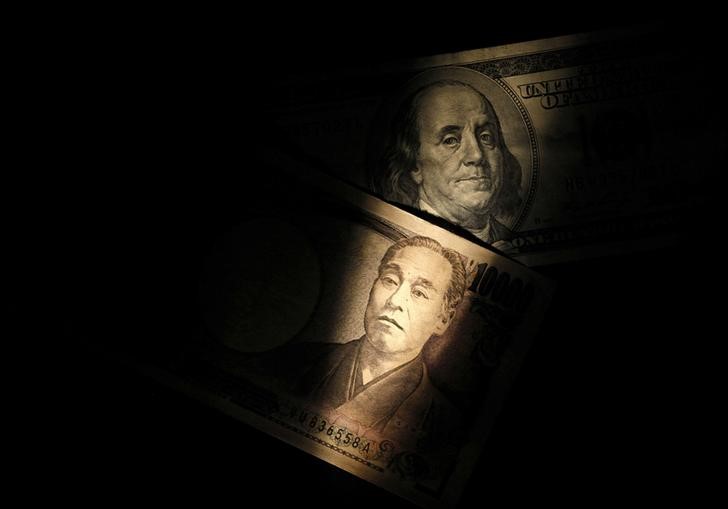By Anirban Nag
LONDON (Reuters) - The yen recovered from lows on Wednesday, with investors skeptical about whether the Bank of Japan latest measures will be enough to generate inflation, with many also cautious about the dollar before the Federal Reserve's policy announcement.
Japan's central bank, overhauling its massive stimulus program, decided to scrap its focus on monetary base and set targets for long-term rates. It also committed to an overshoot of its elusive 2 percent inflation target.
The BOJ maintained the 0.1 percent negative interest rate it applies to some of the excess reserves that financial institutions park with the central bank.
But it abandoned its base money target and instead set a "yield curve control," under which it will buy long-term government bonds to keep 10-year bond yields around current levels of zero percent.
The BOJ's measures gave a boost to global risk sentiment and banking stocks and added to downward pressure on the safe-haven yen, which tends to do well during times when financial markets comes under stress.
But the yen bounced back to trade broadly steady against the dollar and the euro in the European session.
"The announcements likely won't eradicate the scepticism in the market over the BOJ's ability to achieve its inflation goal through additional easing," said Derek Halpenny, European head of market research at Bank of Tokyo Mitsubishi.
"The strengthening of the inflation goal by now seeking an overshoot is all well and good, but if there is deep doubt over reaching even 2 percent, there will be even greater doubt over achieving an overshoot. So there is nothing in today's announcement to make us turn suddenly yen bearish.
The dollar, which rose more than 1 percent to a one-week high of 102.79 yen
The euro, which had surged to 114.36 yen (EURJPY=), was trading at 113.50 yen, only slightly higher on the day. Traders said the fact that BOJ took action to boost inflation was a surprise to many who had doubts that the central bank had much left in its arsenal.
"Many people expected the BOJ not to take any action at all, and the yen to strengthen, so we now see many people buying the dollar back," said Kaneo Ogino, director at foreign exchange research firm Global-info Co in Tokyo.
Investors' attention will now shift to the Fed. The U.S. central bank is widely expected to hold interest rates unchanged at 0.25 percent to 0.50 percent, and could hint at a rate hike by the end of the year.
Weaker-than-expected U.S. economic data has prompted investors to call off bets for a Fed rate hike on Wednesday.

On Tuesday, data showed U.S. housing starts fell more than expected in August as building activity declined broadly after two straight months of solid increases.
(Addtional reporting by Lisa Twaronite; Editing by Tom Heneghan)